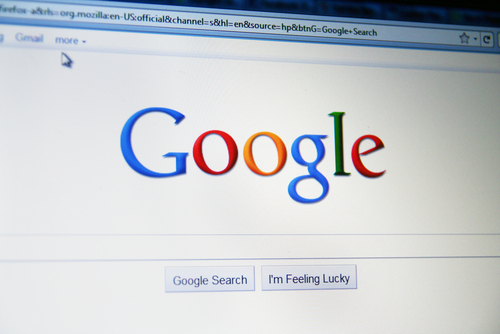Google Boosts E-commerce With Channel Intelligence Deal

Google is paying nearly £80m for a company that will improve online shopping for consumers
Google is enhancing its e-commerce abilities after acquiring a company known as Channel Intelligence, that lets consumers buy products directly through product pages on Websites.
The $125 million (£79m) acquisition of the company is aimed at stretching Google’s abilities to reach consumers in online marketplaces. Channel Intelligence (CI) is an existing partner of the Google Shopping service, according to the company’s Website.
Where-To-Buy
The deal, announced 6 February, is expected to be completed in the first quarter.
Channel Intelligence offers e-commerce services that help businesses market their products to consumers online through buttons that can show them where they can buy the products they are seeking. Such “where-to-buy” buttons on Websites are used by companies – including Target, Philips, Hewlett-Packard, Neiman Marcus, Best Buy and Kimberly-Clark – to offer their products and help consumers obtain them, according to the company. Using such marketing methods, Channel Intelligence says it tracks nearly 15 percent of US sales transactions online and drives $2 billion (£1.3bn) in sales referrals.
 “We want to help consumers save time and money by improving the online shopping experience,” a Google spokesperson said in a statement. “We think Channel Intelligence will help create a better shopping experience for users and help merchants increase sales across the Web.”
“We want to help consumers save time and money by improving the online shopping experience,” a Google spokesperson said in a statement. “We think Channel Intelligence will help create a better shopping experience for users and help merchants increase sales across the Web.”
One of the company’s products, its Buy Now app, allows online retailers to show potential buyers a “dynamically updated list of online retailers that have the advertised product in stock,” where the consumer can purchase the item instantly, according to CI’s Website. “When a consumer clicks on a retailer’s logo in the ad, he/she is sent directly to the product page on that retailer’s site. This provides the consumer with an easy way to buy products that not only drives impulse purchases, but also influences future online and in-store purchases.”
CI can then provide online retailers with detailed analytics that track such purchases throughout the process. About 850 retailers in 31 countries use CI technology, according to the company.
Google has been continuing to build up its e-commerce tool arsenal as it takes on competitors such as Amazon.com in the online retail wars.
In October 2012, Google unveiled its Google Tag Manager tool to make it easier and faster for online digital marketers to “tag” content on Websites so it can be connected to online users.
The free Google Tag Manager lets digital marketers consolidate their Website tags with a single snippet of code and manage them all more easily through a Web-based interface. That gives markets greater flexibility and lets Webmasters focus on other important tasks.
Advertising Gain
For Google, the CI acquisition and tagging tools like this one are very important because advertising revenue is so central to the company’s success and growth.
In December, research data from eMarketer showed that Google outperformed analyst estimates for the third quarter, bringing in $5.8 billion (£3.7bn) to $7 billion (£4.5bn) globally in mobile ad revenue, according to an earlier eWEEK report.
Overall spending on mobile advertising in the United States, including display, search and messaging-based ads served to mobile phones and tablets, rose 180 percent in 2012 to top $4 billion (£2.5bn), according to eMarketer. That’s expected to reach $7.19 billion (£4.6bn) in 2013 and nearly $21 billion (£13.3bn) by 2016.
Fuelled primarily by direct-response advertisers, Google controlled a 56.6 percent share of the US mobile advertising market by late 2012, eMarketer estimated.
Most of Google’s mobile ad revenue comes from search, and eMarketer estimates Google maintains a 93.3 percent share of the overall $1.99 billion (£1.3bn) US mobile search ad market.
Spending on mobile search ads in the United States is expected to jump 55 percent, to $3.6 billion (£2.3bn) in 2013 – of which Google is expected to earn a 92.4 percent share.
Let us probe your knowledge of Google. Try our quiz!
Originally published on eWeek.